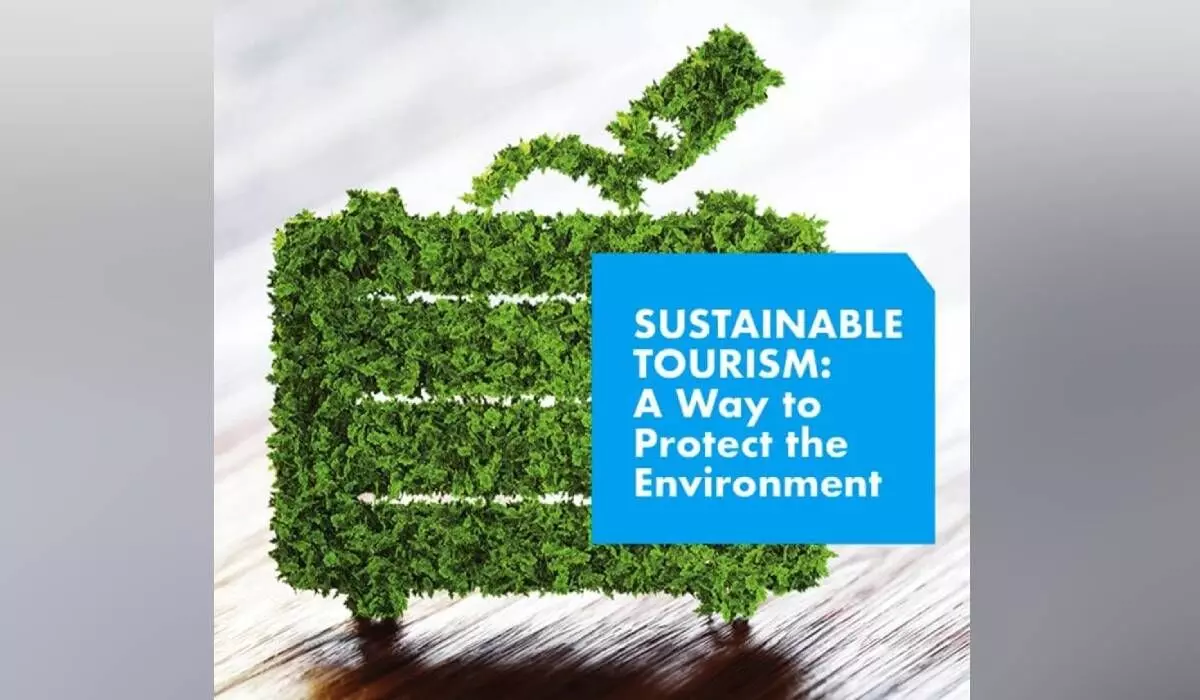Sustainability is the buzzword in tourism sector
Most global travellers prefer to stay in a sustainable property
image for illustrative purpose

Tourism is one of the world's fastest growing industries and an important source of foreign exchange. The goal is to increase investment in sustainable tourism, including eco-tourism and cultural tourism, which may include creating small- and medium-sized enterprises and facilitating access to finance, including through microcredit initiatives for the poor, indigenous peoples and local communities in areas with high eco-tourism potential.
Maritime or ocean-related tourism, as well as coastal tourism, are vital sectors of the economy in small island developing States (SIDS) and coastal least developed countries (LDCs).
The moral licensing in the sector and louder calls for industry change are sure to shape everything from ‘micro-vacations’ to business travel in the year to come. Around 78% of global travellers intend to stay in a sustainable property at least once in the coming year.
According to Booking.com, 48% will only consider travelling ‘off-grid’ if it can be at a more indulgent stay but 53% will have a non-negotiable requirement: phone and internet connection at their destination is essential. Nearly 49% plan to be more indulgent in their spending habits while on vacation to make up for the lack of travel during the last couple of years
Coupled with the need, or desire to ‘Work-From-Anywhere’, more remote flexibility ‘workations’ (ugh, the word!) ‘bleisure’ (double ugh!) are possible – as long as the wifi is reliable. In fact, 29% will take a bleisure trip (business travel + leisure travel) and 28% will take a flexcation (booking accommodation for a longer duration to mix work and play). Around 44% of the global workforce is looking forward to their employer planning a ‘real life’ work trip to bring people together and 51% would like to see their employer use the money saved from the shift to remote/hybrid working models spent on corporate travel or retreats.
People are beginning to understand “where individual agency hits its limit and where industry responsibility becomes essential to securing a better future”. But where 73% of people believe companies must act for the good of the planet and society, 71% don’t believe the promises they make – underscoring the cynicism around the CSR status quo.
But since Covid we’ve witnessed a vast shift in attitudes to sustainable tourism: we’d anecdotally suggest 10-year acceleration.
It’s not just about responding to consumer values and demand changing, but significant industry evolution: the sector’s tourist boards and companies understand that now the need to be resilient means sustainability. It’s not a niche value-add but a requirement going forward. Everyone from tourist boards to tour operators is realising the need to get sustainable and decarbonise. With more focus on carbon accounting, and potential future carbon budgets, perhaps this will highlight the importance to the world of the global south, which contributes little to global emissions but suffer the negative impacts! This is especially given 2022’s COP27 breakthrough agreement on “loss and damage” fund for countries vulnerable to climate disasters after decades of pushing.
It seems like lockdowns have made local transport operations double down on sustainability. Added to that, the cost of living and fuel crises have redoubled efforts to switch from fossil fuels to alternatives.To reach carbon neutrality, we need major shifts in government policies, to modernise legacy infrastructure, and seriously accelerate investment in renewables.
Smart cities are rethinking, considering safety and sustainability, with electrification amplifying, whether e-scooters, e-bikes, cars, buses, trams or trains. Budgets and space are being reapportioned, while Singapore and Amsterdam are increasing car-free zones, nudging citizens to use public transport networks instead. Free public transport in Europe has proven to be effective in reducing traffic, pollution, and getting more people on board, such as in, Luxembourg, Malta, Talinn, certain Danish islands, or Hesselt, Belgium. Other countries like Germany have offered heavily discounted train tickets. The government support is paramount to align investment in research and development and infrastructure.

